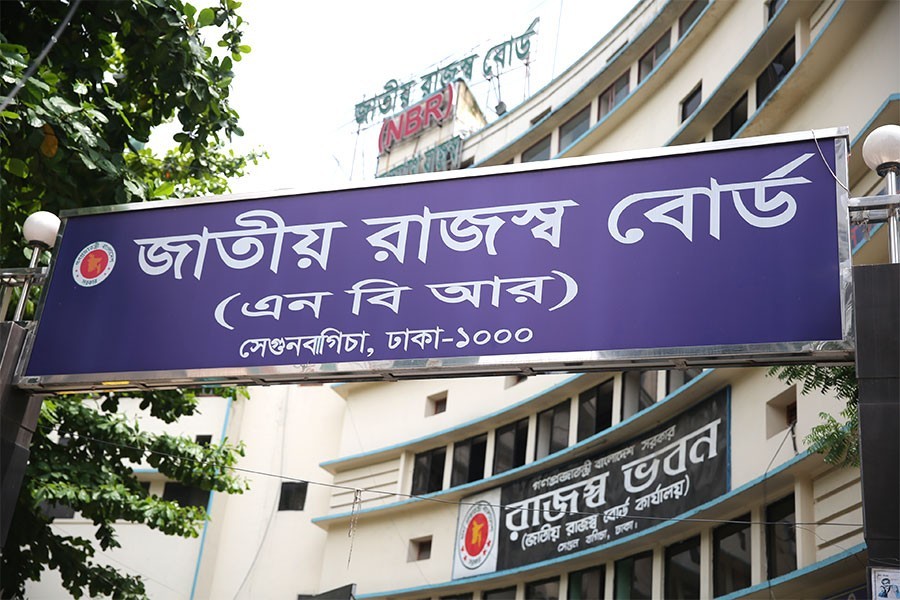Tax collection fell short of the target by Tk 93.18 billion during the July-August period of the current fiscal recording a paltry 3.35 per cent growth. All the three wings of the National Board of Revenue (NBR) -- value added tax, customs, and income tax -- experienced a shortfall by Tk 53.54 billion, Tk 38.58 billion and Tk 1.06 billion respectively of targets during the period. In a meeting with the NBR officials this week, the finance minister while taking stock of the situation referred to various tax waivers as one of the main impediments to achieving desired tax revenue. Emphasising the need for restructuring the tax exemption facilities, he said that no other country in the world allow such large-scale tax exemptions. Revenue collection target for current fiscal is Tk 3.25 trillion.
There is definite merit in the finance minister's comments as providing fiscal incentives to various sectors of the economy, especially the export sectors, by way of reduced tax or waiver has become almost integral to promoting businesses in the country. It is pretty well known that the practice in the form of a typical business promotion strategy has grown deep roots since decades, and successive governments though aware of the adverse impact allowed it to continue instead of applying it cautiously and selectively. What is important here is that there is no clear picture of the amount lost in the process, nor is there any detailed study on cost-benefit -- of money lost in the form of tax concession and gains obtained from increased productivity, employment generation and export growth.
However, considering tax waiver or exemption the sole impediment in realising targeted NBR revenue is not wholly correct. While it does play a significant role, there are some major flaws in the revenue collection mechanism that largely account for collection of less than expected tax revenue. For quite sometime, various quarters, including leading economists, have been insisting that the country's tax net be substantially widened. The country presently has only 4.4 million tax identification numbers (TIN), while the number of eligible tax payers is reportedly around 40 million. Besides, the huge untaxed population, large-scale evasion in paying both income tax and VAT, and absence of automation are the main deterrents to realising expected tax revenue.
The government this year had set the tax revenue growth target at 16.26 per cent over the revised target of the last fiscal (FY19). The growth in collection over the past five years averaged 13.16 per cent. The current year's growth target does not seem too incompatible given the expansion of the economy. However, in order to be able to reach the target, there is the critical need for restructuring the collection mechanism and also addressing the wrongs. The sooner it is done the better.


